|
|
 |
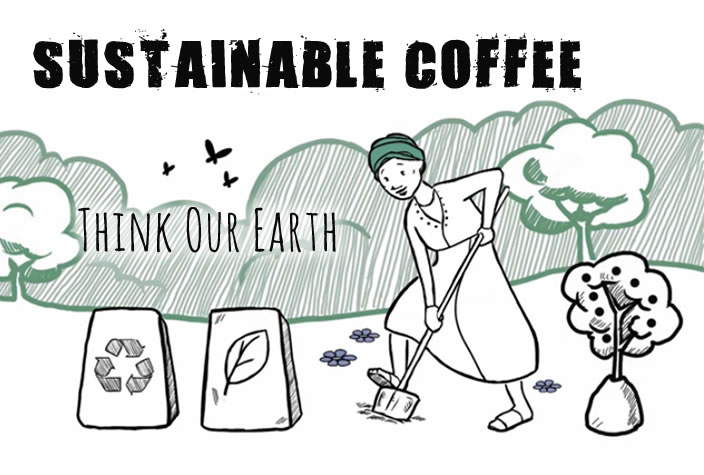 |
| Sustainable coffees are those which are produced with a great consideration for influences on the environment as much as possible for coexisting with nature. |
| |
Rainforest Allicance |
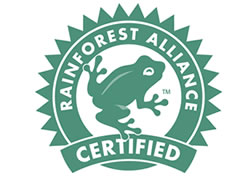 |
|
Rainforest Allicance (http://www.rainforest-alliance.org/)
The Rainforest Alliance works to conserve biodiversity and ensure sustainable livelihoods by transforming land-use practices, business practices and consumer behavior.
It pursues safety and security with definite traceability |
|
| Safety and security, with definite traceability. |
| While the global interest in those farms that practice Corporate Social Responsibility has been rising, the demand for sustainability certified coffee has been taking off.
After a specialty coffee company started leading this performance, general manufacturers and supermarkets gradually started supporting certified coffee.
|
| |
About Rainforest Alliance |
In 1993, the Rainforest Alliance and its partner groups in the Sustainable Agriculture Network (SAN) demonstrated that traditional, forested coffee farms are havens for wildlife.
Now, coffee lovers everywhere can support farmers who maintain these rainforest refuges simply by buying beans stamped with the Rainforest Alliance Certified™ seal of approval.*
As to get Rainforest Alliance verification, producers need to complete the following requirements: they have to make an effort for conserving forest, river, soil and wild animals.
In addition, they have to express their respect for labors, give them the payment of fair wages, distribute necessary working condition, and give them opportunities for education and medical treatment.
The verification mark shows that it is proved by experienced inspectors that the producers have completed the rigorous social and environmental standard, and they are truly heading for sustainability. |
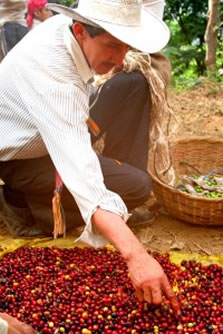 |
|
| |
|
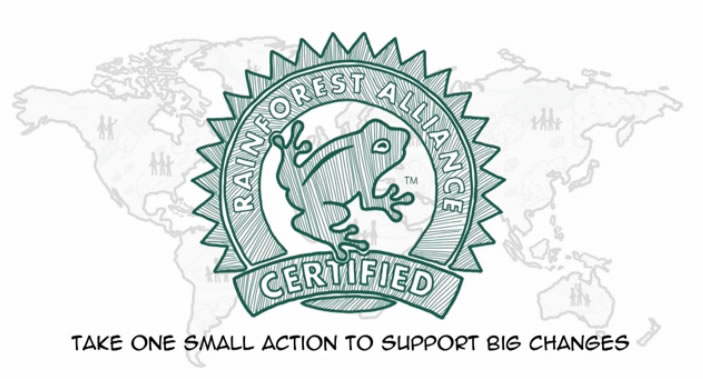 |
>> Rainforest Alliance's official website |
|
|
|
Supporting Farm Owner, Protecting Workers, Being Eco-friendly |
 |
|
According to an investigation by biologist of the Sustainable Agriculture Network, it is clarified that those farms which cultivate coffee in forest and have Rainforest Alliance verification also play a role in being a biologically diverse buffer zone between park areas.
It is to conserve watershed, and function as corridors for animals as well.
These "coffee forests" are important supplying areas of firewood, building materials, herbs, fruits, flowers, honey and so on.
Most of the certified farms are to protect primal forest conservation area and the source of a local river.
It connects sustainable farm management to improvement in quality of coffee, and associate certified communities and businesses with responsible buyers and advantageous markets.
Consumers can contribute to change farmers' life for the better and conserve an ecosystem in rainforests, only by having a cup of certified sustainable coffee. |
|
| |
JONA (Japan Organic & Natural Foods Association) |
|
JONA (Japan Organic & Natural Foods Association)
JONA is an organic certification which certifies only foods that are produced with using natural compost following global standard, without involving modern synthetic pestisides and chemical fertilizers for environmental conservation and raising soil productivity. The food needs to complete each requirement throughout all the processes from cultivation to distribution. |
|
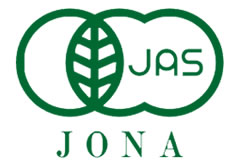 |
|
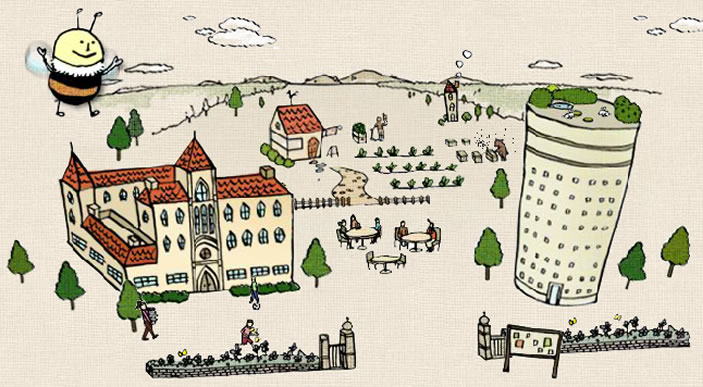 |
Japan Organic & Natural Foods Association official website |
About Organic Coffee |
|
JONA certifies only foods that are produced with using natural compost following global standard, without involving modern synthetic pestisides and chemical fertilizers for environmental conservation and raising soil productivity.
The food needs to complete each requirement throughout all the processes from cultivation to distribution.
It is mandator for an operator to obtain organic JAS certification from a registered certification body by having their operation inspected in order fir their product t claim "Organic" on crops or proceessed foods in Japan (organic JAS certifivcation is voluntary if JAS marks are not intended to be attached on organic livestock, organic feed, and orfanic food processed mainlt from non-crop ingredients).
It is not allowed to pit organic JAS marks on the products and claim organic if the operator is not certified to JAS.
An operator that illegally labels products is subject to penalties in line with JAS law.
Producers have to have an inspection from a registeredcertification body to evaluate their competence, syste, and equipments to produce organic coffee.
The organic food is safer or more healthy than conventional food.
Our plant also has gotten the certification. |
| |
|